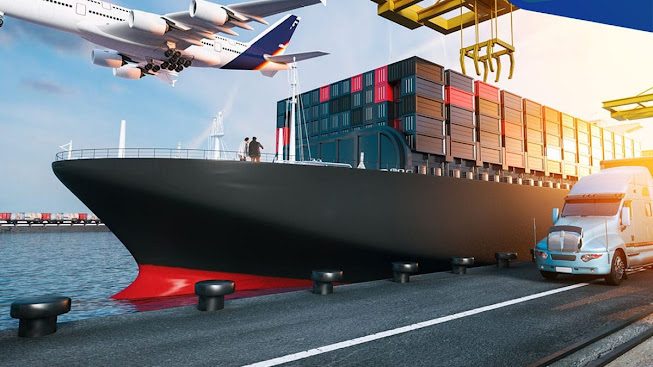Lars Winkelbauer - Revolutionizing Air Cargo: Embracing Digital Technology for Transformation
The air cargo industry, while vital for international exchange, has been grappling with numerous challenges stemming from previous practices and inadequate technological infrastructure. In this digital age, the enterprise faces crucial problems inclusive of negative statistics management, limited records sharing, and reliance on legacy structures. In this blog, we discover the want for digital transformation within the air cargo industry and innovative solutions that might be shaping its future.
 |
| Lars Winkelbauer - Revolutionizing Air Cargo: Embracing Digital Technology for Transformation |
Challenges Faced through the Air Cargo Industry:
The essential challenges plaguing the air cargo industry are multifaceted:
1. Outdated Customer Touch Points: The enterprise frequently lacks modern customer touchpoints, main to a suboptimal consumer revel.
2. Revenue Leakage: Underutilization of cargo potential affects sales losses for vendors.
Three. Data Utilization: The incapability to harness information and expect real-time calls for undermines efficiency.
4. Paper-Based Processes: Over 50% of worldwide air change nevertheless is based on paper-based total transactions, slowing down operations and increasing costs.
5. Tracking Limitations: Cargo consignments cannot be tracked in real-time once they go away from the carrier's community.
6. Integration Gaps: Lack of integration throughout the supply chain results in inefficiencies and better costs.
These issues regularly originate from previous legacy IT systems utilized by vendors, which function in isolation and restrict their ability to conform hastily to converting market conditions.
Creating the Future of Air Cargo Today:
1. Blockchain-Based Cargo Networks: AirAsia's Freightchain leverages blockchain to offer actual-time bookings, permitting shippers to pick out exceptional shipping alternatives.
2. Autonomous Transport: Frankfurt airport is growing a "clever air shipment trailer" (SAT) managed through a cloud-based total platform.
3. Drones for Inventory Management: Dnata Dubai is checking out drones for scanning shipment barcodes, and improving stock control.
4. Vision Picking Smart Glasses: DHL is deploying "Vision Picking" clever glasses, improving order-choosing efficiency with visible commands.
5. Computer Vision: DHL is exploring PC vision to hit upon fraud and optimize shipment loading, improving normal operations.
 |
| Lars Winkelbauer - Revolutionizing Air Cargo: Embracing Digital Technology for Transformation |
Conclusion
The air cargo industry stands at a pivotal juncture, with the virtual era providing transformative answers to lengthy-standing challenges. By adopting blockchain, autonomous systems, drones, smart glasses, and PC vision, the industry can chart a brand new path closer to advanced efficiency, consumer delight, and operational excellence. Lars Winkelbauer, a visionary in the field, understands the significance of these improvements and is a key figure in shaping the future of air cargo.



Comments
Post a Comment